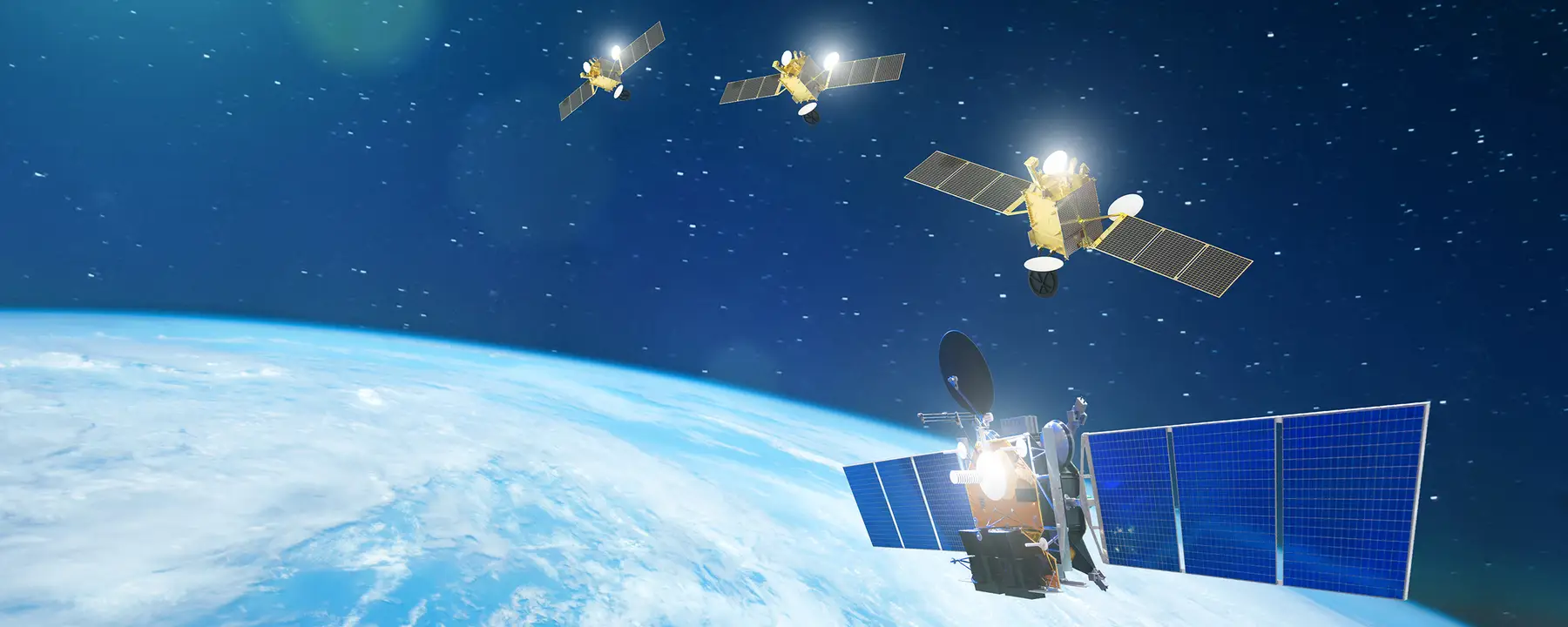Analyzing the Importance of the Global Positioning System Throughout the U.S. Economy
GPS steers drivers through cities and along highways, ensures that packages reach their destinations on time, helps farmers plan the best use of their land, alerts people when their friends are nearby, and keeps wide-ranging power and communications networks in sync.
By doing all this and more, it has driven $1.4 trillion in economic growth since 1983, according to an RTI analysis.
The Global Positioning System, or GPS, started out as a product of the space race, the United States’ late-20th century effort to surpass Soviet achievements in space. Unleashed into the private sector just as multiple technological innovations were taking off, GPS grew into an economic powerhouse. Many industries leveraged GPS to grow more productive, while others were built entirely around the new technology.
RTI economists recently completed an in-depth report on GPS for the National Institute of Standards and Technology. GPS, we found, is a prime example of how scientific investments from government can pay off for society, often in greater amounts and in more far-reaching ways than initially imagined.
To arrive at the final impact figure, our team conducted a detailed examination of 10 sectors that have benefited from GPS:
- Telecommunications – synchronizing signals across nationwide wired and wireless networks
- Precision agriculture – using spatial data to manage farms and grow crops more efficiently
- Electricity – monitoring the power grid, improving efficiency and maintenance operations
- Financial services – Time-stamping transactions and minimizing fraud from high-frequency trading
- Location-based services – a new, GPS-based sector that includes navigation, emergency services, and other applications for smartphones and consumer devices
- Maritime industries – a sector that transitioned from older technologies, such as Loran-C, to GPS, for more precise positioning and navigation systems and more efficient management of ports
- Surface mining – finding sources of valuable materials and improving safety for workers
- Oil and gas – exploring and operating deepwater drilling sites
- Professional surveying – an industry based on precise measurements that is more efficient and accurate thanks to GPS
- Telematics – equipping large fleets of commercial vehicles for remote monitoring
Our analysis of these diverse sectors contains important insights about how companies and consumers adopted GPS and built businesses around it. None of this growth would have been possible if the U.S. government had not made this world-changing technology freely available for private use.
From Military Research to Public Infrastructure: How GPS Entered the Market
In the late 1950s, the United States began exploring space and its potential for defense and commerce. Alongside the well-known space exploration efforts of the 1960s and 70s, various defense and scientific agencies continued to build and launch satellites with positioning, navigation, and timing capabilities. Eventually, they established the network of satellites and ground-control stations that comprises GPS.
The decision to make GPS public came in 1983, when a Korean passenger plane was shot down after unintentionally flying into Soviet airspace. President Ronald Reagan announced that the GPS signal would eventually be made available to civilian aircraft, enabling more precise navigation. The telecommunications and surveying industries began using GPS in the 1980s and 1990s. In 1994, GPS became a part of the U.S. air traffic control system.
After its initial release, the economic impact of GPS grew slowly until 2010. In fact, 90 percent of the $1.4 trillion we measured has accrued since that year, mostly due to GPS enabling high-speed wireless communications networks and providing the critical signal for location-based services. The rapid—and continuing—expansion of GPS coincides with the spread of the smartphone, the replacement of GPS predecessors, and other developments.
Where Would We Be Without GPS?
To illustrate the importance of GPS in even more detail, we also investigated the potential effects of a major GPS outage. That could happen due to space weather events, such as solar flares, or hostile actors. How would the various industries cope if they suddenly had to operate without GPS? What if the outage continued, perhaps for up to 30 days?
It’s staggering to imagine. The specific effects of such a disaster would depend on whether other countries’ GPS-like systems were affected and how quickly various industries could revert to pre-GPS technology. Economically speaking, transportation and communications gridlock might even pale in comparison to the harm done to agriculture. We estimated that a complete GPS outage would cost the economy $1 billion per day, but possibly even more if the system failed during planting season, when farmers use precision agriculture techniques to optimize crop yields.
Such a prolonged outage may be unlikely. But the $1 billion-per-day economic loss, we found, far outweighs the cost of building backup GPS systems.
The View from Above: Gaining Perspective on Technology and Society
RTI is uniquely suited to study technologies like GPS that have affected hundreds of millions of lives. The economists who wrote this report specialize in analyzing innovation and technology from a social perspective. We take a long-term view of the relationship between research, infrastructure, and the public good, helping clients realize the impact of past developments and envision future applications.
Leaders in government acknowledge the importance of GPS. The Office of Space Commerce, a longstanding section of the Department of Commerce, oversees satellite navigation and supports U.S. companies that depend on resources in space. The newly formed, bipartisan Congressional GPS Caucus focuses on the role of GPS, particularly in precision agriculture—a key part of the economy in Midwestern states.
GPS has become part of the national reality. Each route, transaction, or signal that the system enables helps individuals accomplish something that would have happened more slowly or imprecisely without GPS. Millions of tiny efficiencies add up to benefits that have reached all of us in ways we are only starting to understand. Our study of GPS offers valuable lessons as we watch to see which of today’s emerging technologies may go on to change the world.
- National Institute of Standards and Technology (NIST)


